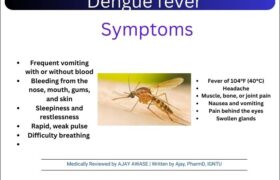The red, round pill with imprint 44 is known to contain 30 milligrams of pseudoephedrine hydrochloride. Major Pharmaceuticals Inc. provides it.
Pseudoephedrine is a member of the decongestant medication class and is used to treat allergies and nasal congestion. The medicine has not been categorized by the FDA as risky during pregnancy. According to the Controlled Substances Act (CSA), pseudoephedrine 30 mg is not a prohibited substance.
| Attribute | Details |
|---|---|
| Availability | Rx and/or OTC |
| Drug Class | Decongestants |
| Pregnancy Category | N – Not classified |
| CSA Schedule | Not a controlled drug |
| Labeler / Supplier | Major Pharmaceuticals Inc. |
USES
A decongestant that constricts blood vessels in the nasal passages is pseudoephedrine. One possible cause of nasal congestion (stuffy nose) is dilated blood vessels.
Pseudoephedrine is used to relieve congestion of the eustachian (yoo-STAY-shun) tubes, which drain fluid from the inner ears, as well as congestion of the sinuses and nasal passages.
There are additional uses for pseudoephedrine besides those specified in this medicine guide.
WARNINGS
Giving pseudoephedrine to a child under the age of four is not advised. Before giving a child medicine for a cold or cough, always get a doctor’s approval. When extremely young children misuse cough and cold medications, it can result in death.
Consult a physician or pharmacist before to taking any additional cold or cough medication. Many combination treatments contain pseudoephedrine or other decongestants. Combining some products can result in an overabundance of a particular medication. To find out if a medication contains a decongestant or pseudoephedrine, read the label. When using an MAO inhibitor, such as furazolidone (Furoxone), isocarboxazid (Marplan), phenelzine (Nardil), rasagiline (Azilect), selegiline (Eldepryl, Emsam, Zelapar), or tranylcypromine (Parnate), during the previous 14 days, avoid using pseudoephedrine.
SIDE EFFECTS
If you have any of the following symptoms of a pseudoephedrine allergic reaction, get emergency medical attention: hives; trouble breathing; swelling of the face, lips, tongue, or neck. If you experience a major side effect, such as any of the following, stop using pseudoephedrine and notify your doctor right away.
erratic, rapid, or pounding heartbeat;
extreme anxiety or dizziness;
easy bleeding or bruising, strange weakness, chills, fever, aches in the body, or symptoms of the flu; or
extreme headache, blurred vision, ringing in the ears, anxiety, disorientation, chest pain, difficulty breathing, irregular heartbeat, seizure). extremely high blood pressure.
The following are less dangerous adverse effects of pseudoephedrine:
appetite decline;
under-skin warmth, tingling, or redness;
feeling agitated or ecstatic, particularly in kids;
insomnia (difficulties sleeping); or
irritation or skin rash.
This isn’t

